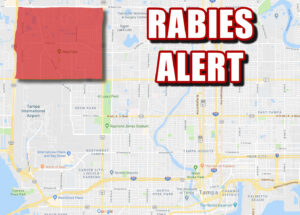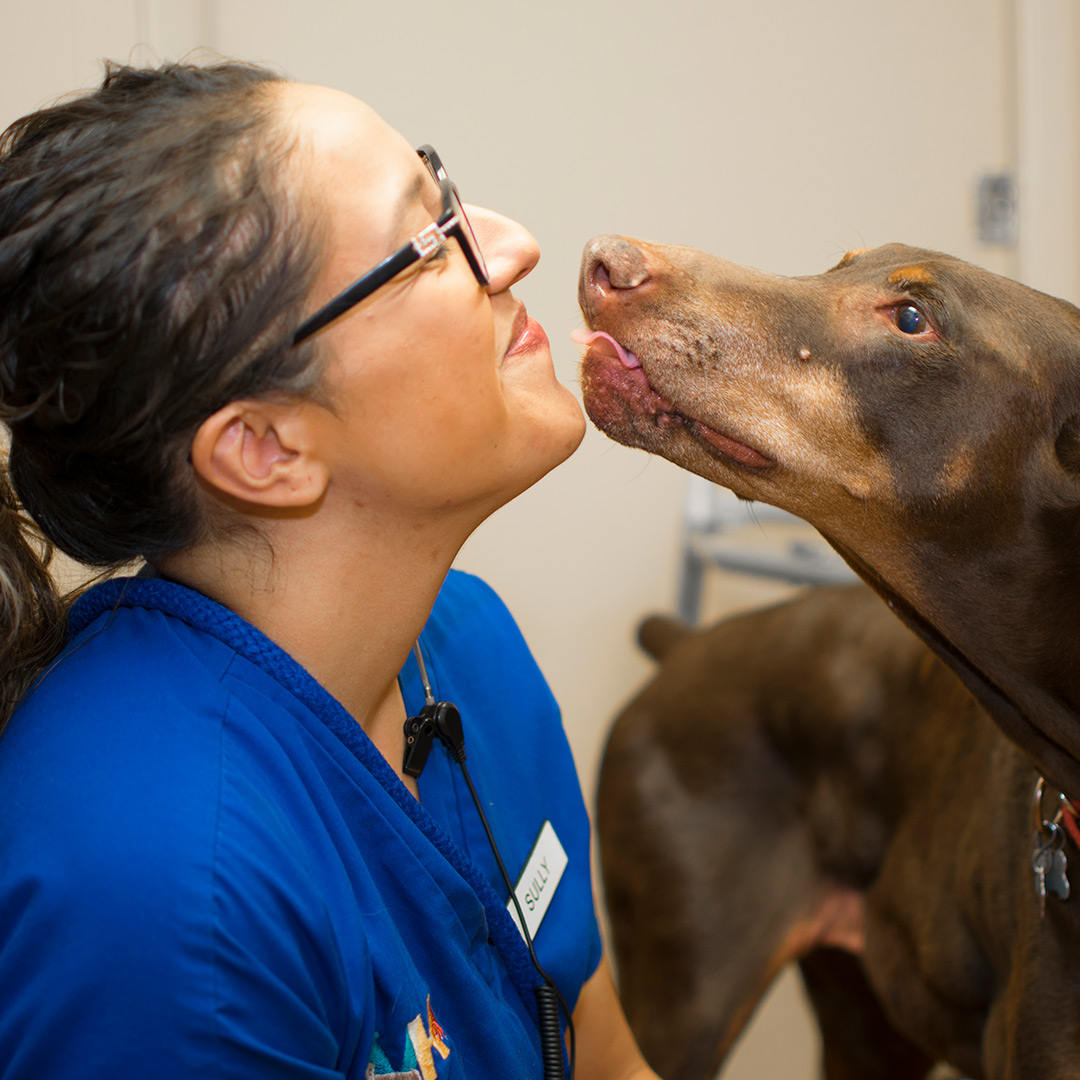Rabies Alerts for Hillsborough County
Updated August 29, 2018
In the past week, there have been 2 new cases of rabid cats attacking residents of Hillsborough County. The latest unprovoked attack took place in Gibsonton, with the previous attack taking place in Tampa, a few miles north of the airport. This brings the number of confirmed rabies cases in our county to nine for this calendar year. With the number of reported, confirmed cases- it is more important now than ever to ensure that your pets are current on their rabies vaccinations to ensure they are protected.
 A 60 day rabies alert has been issued for the following two areas:
A 60 day rabies alert has been issued for the following two areas:
In Gibsonton: South from the Alafia River to Symms Road, East of East Bay Drive to US 41/Tamiami Trail.
In Tampa: East of Dale Mabry to the Veterans Expressway, Waters Avenue to Hillsborough Avenue. This advisory will be in effect for 60 days from issuance.
What is Rabies?
Rabies is a virus that affects the central nervous system in mammals, and is most often fatal. It is also zoonotic, which means it can be spread from animals to humans. Rabies is almost always spread when an infected animal bites another animal or a human. If your pet is bitten by an infected animal (foxes, raccoons, skunks and bats are the most common culprits) they may not immediately show signs of infection. The incubation period for Rabies can be as little as a few days and up to a year or longer in rare cases. Incubation times are not completely understood, but are thought to be influenced by the severity of the bite, how close it is to the spine or brain, and how much virus was transmitted through saliva in the bite.
Symptoms of Rabies
Many people think of the phrase “foaming at the mouth” when they think of Rabies symptoms. Although excessive salivation- or frothing saliva is one potential symptom, it is not the only one. Here is a list of common symptoms of Rabies. Not all infected pets show all signs.
- Fever
- Seizures
- Paralysis
- Open mouth/dropped jaw
- Difficulty swallowing
- Noticeable change in tone/pitch of bark
- Lack of coordination
- Excessive excitability
- Constant irritability/changes in attitude and behavior
- Excessive salivation (hypersalivation), or frothy saliva
What do I do if I suspect my pet may have rabies?
If your pet has been bitten by either a wild animal, or a pet unknown to you, consult your veterinarian immediately for treatment. If your pet is acting aggressively, and you are in jeopardy of being bitten DO NOT attempt to capture them and notify your local animal control to contain them.

Prevention is simple
Most veterinarians offer both a one-year and a three-year vaccine which is safe and effective for most pets. Although rare, some pets do have a negative reaction to the vaccine. In very rare cases, we can draw your pet’s blood and send it to a lab to determine your pet’s level of antibodies (a Rabies Titer test). However, the level of antibodies does not necessarily tell us whether your pet is fully protected. “Titering” as it is known as in the veterinary community is expensive, and should not be used as a replacement for your pet’s vaccines. At Tampa Veterinary Hospital, we can protect your pet with either the one-year or three-year vaccine, as well as provide you with your Hillsborough County Rabies tag, which is required each year.
Other tips we recommend to minimize your pet’s risk:
- Do not feed or attract stray animals or wildlife by feeding them, or leaving food out.
- Keep outdoor trash cans tightly covered to prevent attracting foraging animals.
- Avoid unfamiliar animals, regardless of their friendly or tame appearance.
